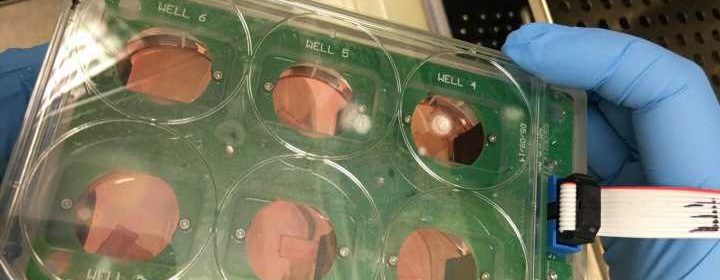New method enables more extensive preclinical testing of heart drugs and therapies

Researchers at the University of Louisville have developed an easily reproducible system that enables them to keep slices of human hearts alive for a longer period of time, allowing more extensive testing of new drugs and gene therapies.
This new biomimetic culture system mimics the environment of a living organ through continuous electrical stimulation and oxygenation, maintaining viability and functionality of the heart segments for six days. Previous culture systems maintained functional heart slices for no more than 24 hours. The extended viability time will enable improved preclinical testing of new drugs for effectiveness and toxicity.
“This new method maintains fully functional human heart slices for six days in the culture environment. This facilitates testing efficacy of heart failure therapeutics and cardiotoxins on human heart tissue with no need for a living human,” said Tamer M. A. Mohamed, Ph.D., who led the research.
The system provides access to the complete 3-D multicellular system that reflects the heart’s functional and structural condition in a living person.
“This system will save time and costs of clinical trials during phase one research, which includes testing for toxicity and proof of efficacy,” Mohamed said. “In addition to drugs, we have demonstrated the system’s effectiveness in testing gene therapy.”
Source: Read Full Article
